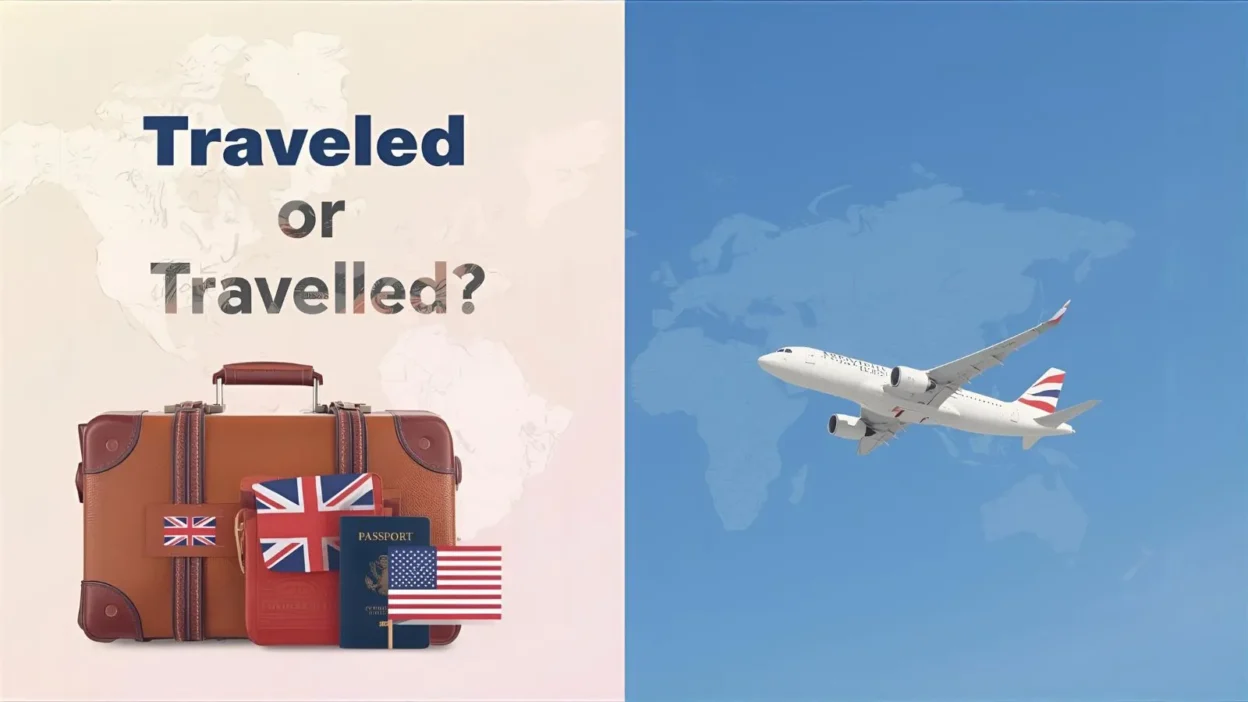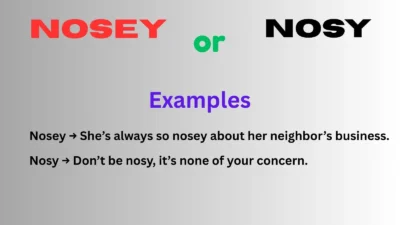If you’ve ever paused while writing to ask yourself, “Is it traveled or travelled?” you’re not alone. This small spelling difference causes big confusion for writers, students, professionals, and even native speakers.
The search for this keyword is common because people want clarity—especially when drafting emails, essays, or formal documents that must appear polished and correct.
The reason behind the mix-up lies in regional spelling variations between American English and British English. Just like “color” vs. “colour” or “organize” vs. “organise,” “traveled” and “travelled” are both correct—but the choice depends on where your audience is located.
Understanding this subtle difference ensures your writing looks natural, professional, and tailored to your readers.
In this article, we’ll break down the quick answer, the origin of the word, spelling rules, real-world examples, and usage data.
By the end, you’ll know exactly when to use “traveled” and when “travelled” fits best.
Traveled or Travelled – Quick Answer
Both spellings are correct.
- Traveled → American English
- Travelled → British English (including Commonwealth countries like Canada, Australia, and India)
Examples:
- US: I traveled to New York last summer.
- UK: She travelled across Europe by train.
The Origin of Traveled or Travelled
The word “travel” comes from the Old French travailler, meaning “to toil” or “to make a journey.” As English evolved, many double-consonant spellings simplified in the US.
Noah Webster, the American lexicographer, pushed for streamlined spelling in the 19th century, leading to shorter versions like “traveled.” British English, however, kept the traditional double-l style.
British English vs American English Spelling
General Rule
- In American English, words with two-syllable verbs ending in a vowel + consonant often do not double the final consonant before adding suffixes.
- In British English, the final consonant is usually doubled.
Examples:
- US: traveled, canceled, labeled
- UK: travelled, cancelled, labelled
Comparison Table
| Word Base | American English | British English |
| Travel | Traveled | Travelled |
| Cancel | Canceled | Cancelled |
| Label | Labeled | Labelled |
Which Spelling Should You Use?
- US Audience: Always use traveled.
- UK & Commonwealth Audience: Use travelled.
- Global/Online Audience: Pick one style and stay consistent. Many international businesses prefer American spelling due to global readability.
Common Mistakes with Traveled or Travelled
- Mixing both spellings in the same document.
- Wrong: She traveled to London and then travelled to Paris.
- Correct: Choose one style and stick with it.
- Wrong: She traveled to London and then travelled to Paris.
- Thinking one version is incorrect. Both are correct—context matters.
- Applying the wrong spelling in formal writing (e.g., job applications, research papers).
Traveled or Travelled in Everyday Examples
- Emails:
- US: I traveled for the conference last week.
- UK: I travelled for the conference last week.
- US: I traveled for the conference last week.
- News:
- US media: The President traveled to Texas today.
- UK media: The Prime Minister travelled to Scotland today.
- US media: The President traveled to Texas today.
- Social Media:
- Just traveled across the country! vs Just travelled across the country!
- Just traveled across the country! vs Just travelled across the country!
- Formal Writing: Always match your target audience’s preferred spelling.
Traveled or Travelled – Google Trends & Usage Data
Google Trends shows that “traveled” dominates in the United States, while “travelled” is most common in the UK, Australia, Canada, and India.
In global contexts, “traveled” appears more often due to the influence of American media and publishing.
FAQs
1. Is “traveled” American or British?
Traveled is American English.
2. Is “travelled” wrong?
No, it’s correct in British English and Commonwealth countries.
3. Why does American English drop the extra “l”?
Spelling reforms simplified many double consonants in the 19th century.
4. Should I use “traveled” in academic writing?
Yes, if writing for an American institution. Use “travelled” if writing for a British one.
5. Do Australians use “travelled”?
Yes, Australia follows British spelling.
6. Can I use either spelling online?
Yes, but consistency is key. Pick one and stick with it.
7. Does “travelling” follow the same rule?
Yes. US → traveling, UK → travelling.
Conclusion
The choice between “traveled” and “travelled” isn’t about right or wrong—it’s about audience and context.
American English favors the single “l” version, while British English and Commonwealth countries prefer the double “l.” Both are correct, but consistency is what matters most.
When writing for global audiences, American spelling often feels more familiar due to international media and business usage.
However, if your readers are UK-based or in Commonwealth regions, stick with “travelled” to match expectations.
By mastering this simple distinction, you’ll avoid confusion, write with confidence, and tailor your message to connect better with your audience.
Whether in an email, a social post, or an academic paper, knowing the difference ensures your writing looks polished and professional.



